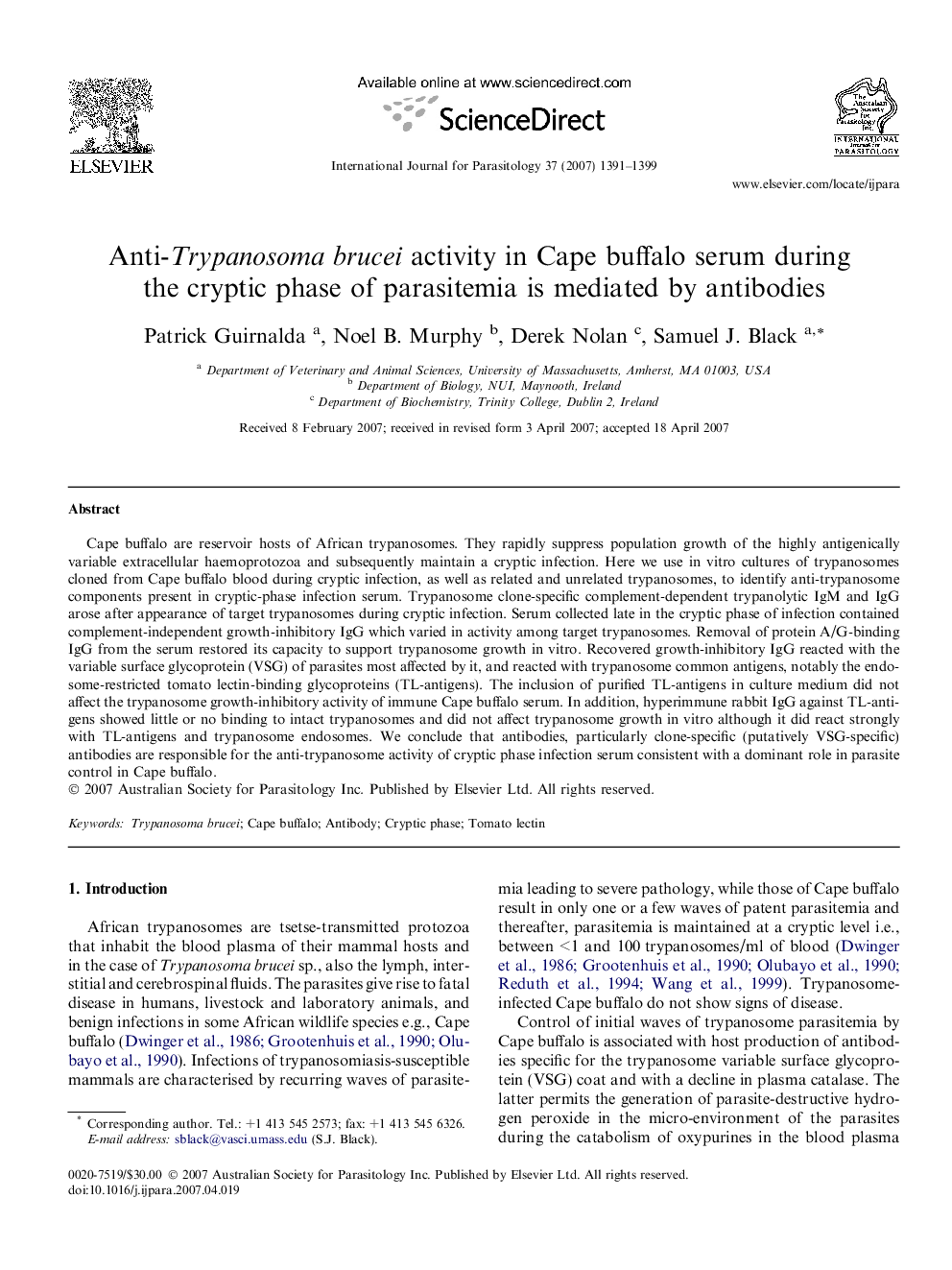| Article ID | Journal | Published Year | Pages | File Type |
|---|---|---|---|---|
| 10972767 | International Journal for Parasitology | 2007 | 9 Pages |
Abstract
Cape buffalo are reservoir hosts of African trypanosomes. They rapidly suppress population growth of the highly antigenically variable extracellular haemoprotozoa and subsequently maintain a cryptic infection. Here we use in vitro cultures of trypanosomes cloned from Cape buffalo blood during cryptic infection, as well as related and unrelated trypanosomes, to identify anti-trypanosome components present in cryptic-phase infection serum. Trypanosome clone-specific complement-dependent trypanolytic IgM and IgG arose after appearance of target trypanosomes during cryptic infection. Serum collected late in the cryptic phase of infection contained complement-independent growth-inhibitory IgG which varied in activity among target trypanosomes. Removal of protein A/G-binding IgG from the serum restored its capacity to support trypanosome growth in vitro. Recovered growth-inhibitory IgG reacted with the variable surface glycoprotein (VSG) of parasites most affected by it, and reacted with trypanosome common antigens, notably the endosome-restricted tomato lectin-binding glycoproteins (TL-antigens). The inclusion of purified TL-antigens in culture medium did not affect the trypanosome growth-inhibitory activity of immune Cape buffalo serum. In addition, hyperimmune rabbit IgG against TL-antigens showed little or no binding to intact trypanosomes and did not affect trypanosome growth in vitro although it did react strongly with TL-antigens and trypanosome endosomes. We conclude that antibodies, particularly clone-specific (putatively VSG-specific) antibodies are responsible for the anti-trypanosome activity of cryptic phase infection serum consistent with a dominant role in parasite control in Cape buffalo.
Related Topics
Life Sciences
Immunology and Microbiology
Parasitology
Authors
Patrick Guirnalda, Noel B. Murphy, Derek Nolan, Samuel J. Black,
